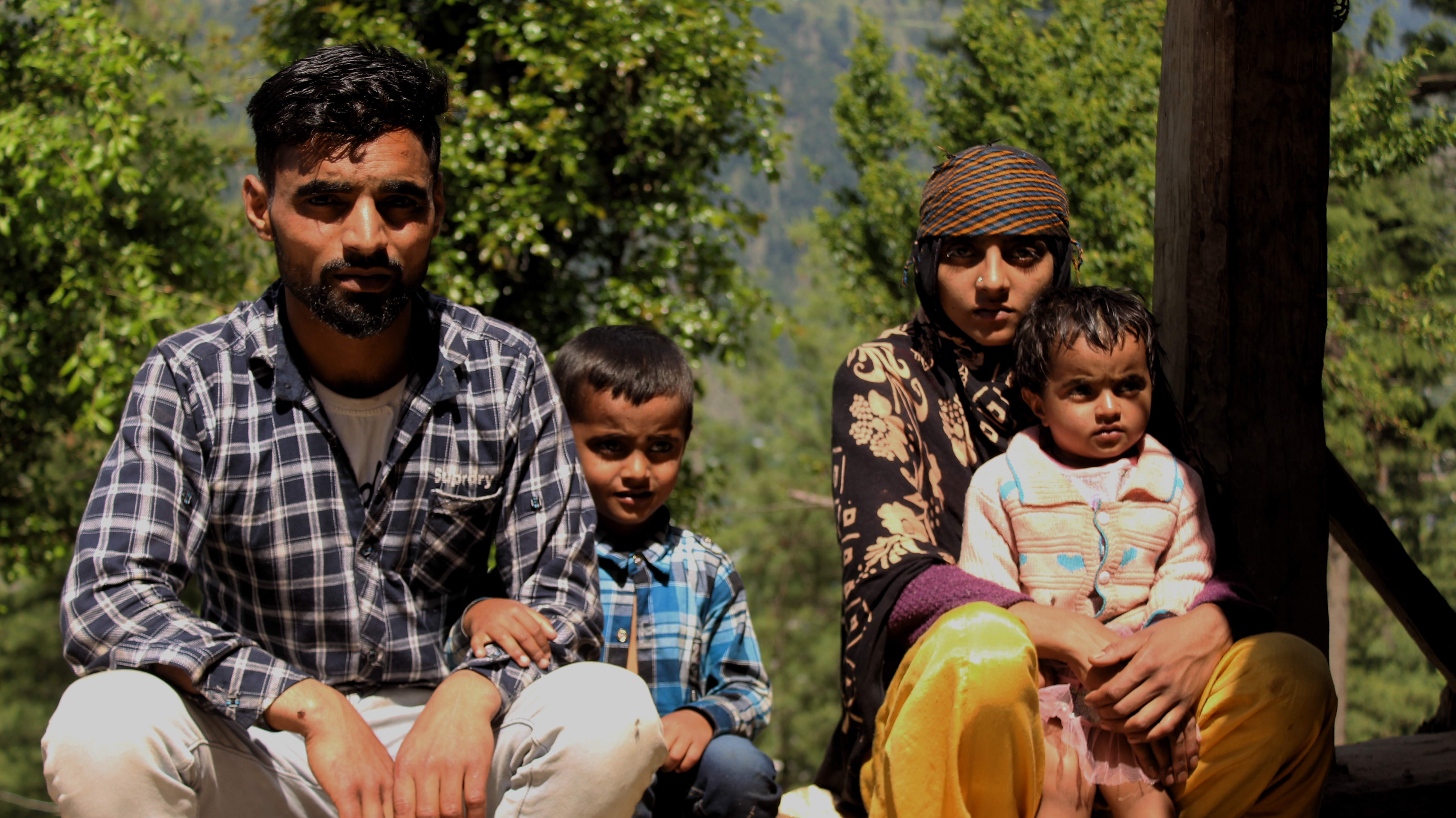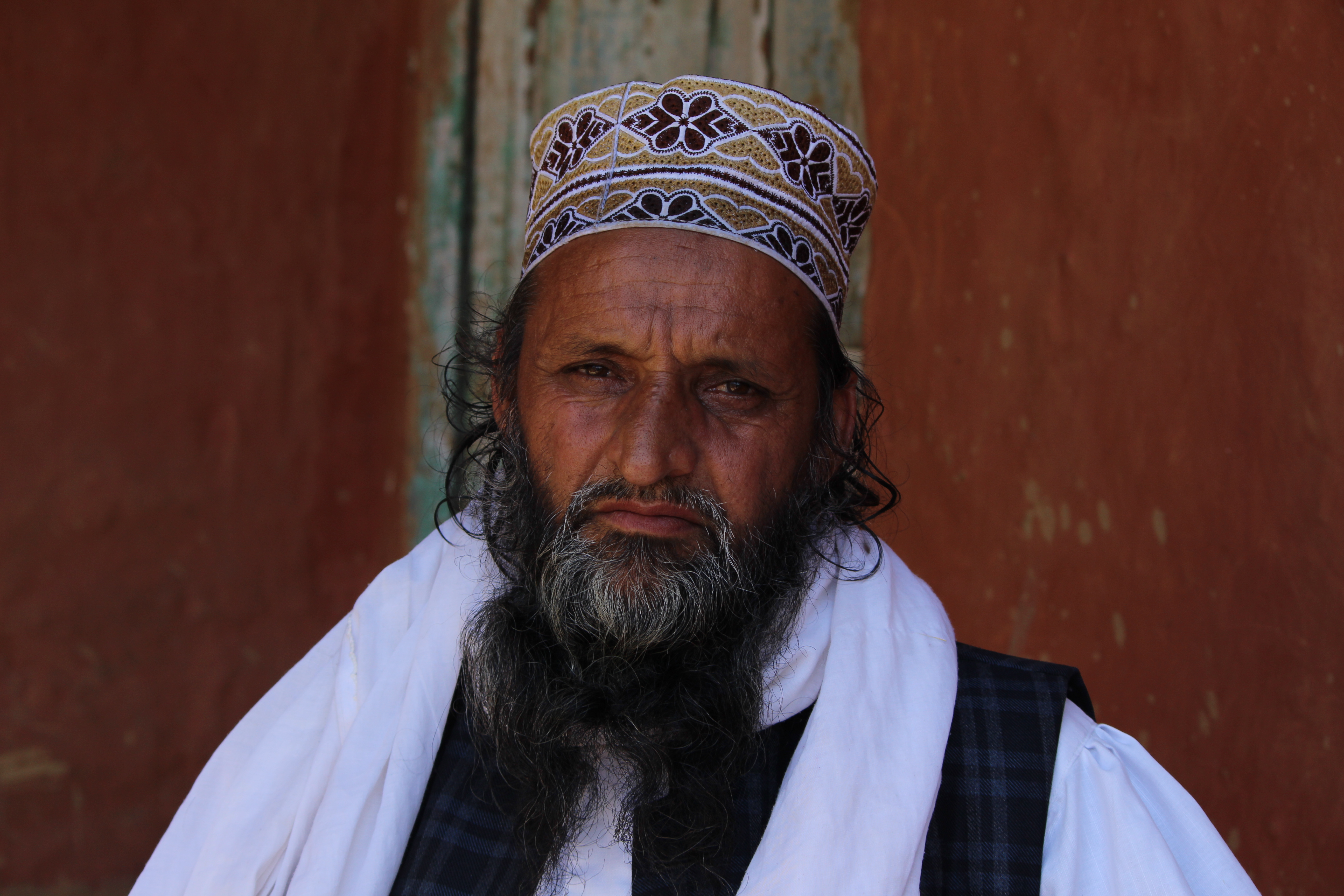Gujjar Lung or Covid-19: Explaining cause of deaths in Gujjar-Bakarwal community in Jammu and Kashmir?

The Gujjar-Bakarwal live in the hilly areas of the Indian subcontinent, especially in Jammu and Kashmir, Himachal Pradesh, Rajasthan, Pakistan, Tibet. The nomadic community is one of the region’s most backward tribes and remain educationally, economically, politically, and socially backwards and do not have access to adequate medical facilities. As recent deaths in the community have raised concerns for Covid-19, a TCN Ground Report looks at how the community is responding to Covid-19 and the impact the virus has had on their annual migratory plans and selling of dairy products.
Shadab Farooq | TwoCircles.net
JAMMU – After some deaths due to respiratory illnesses in the nomadic Gujjar-Bakerwal community in Jammu and Kashmir, activists and stakeholders have called for conducting Covid-19 tests in the community as the cause of death remains unknown.
While some have attributed the deaths to Gujjar Lung (a type of domestic pneumoconiosis commonly seen in an ethnic group residing in the hilly regions of the Indian subcontinent), others have raised concerns about Covid-19.
Pertinently, patients with a history of significant exposure to wood smoke often present with chronic respiratory complaints including symptoms as dry cough and shortness of breath. This type of illness is common among the Gujjar-Bakerwal community.
The Gujjar-Bakarwal live in the hilly areas of the Indian subcontinent, especially in Jammu and Kashmir, Himachal Pradesh, Rajasthan, Pakistan, Tibet. The community is one of the region’s most backward tribes and remain educationally, economically, politically, and socially backwards and do not have access to adequate medical facilities.
The community typically lives in ill-ventilated mud houses with a ‘Chullah (oven)’ for burning biomass. Wood, cow dung, dried grasses, and other biomass materials are widely used to cook food, heat homes, and provide lighting, and are usually burned for 12-16 hours a day.
While the deadly coronavirus has not wreaked havoc in these remote areas, preventive steps such as movement restrictions have had a significant impact on this nomadic community. The tribal population are aware of the disease but are less aware of social distancing norms and the symptoms of Covid-19.
Lack of medical facilities
Mureed Ahmed, 23, who lives in Upper Dandi Village, about 240 kilometres from Jammu, travelled fifteen kilometres to Bhaderwah by foot, the nearest town, to get medicine for his ailing father, Fareed Ahmed, 50, but was severely beaten by police who were enforcing the Corona curfew.
“My father has been on medications for the past two years due to severe kidney and respiratory problems. We live in a remote hilly area where we have to travel long distances to get medicines. My mother died three years ago as a result of a dry cough and shortness of breath for which we were unable to obtain proper medical attention. Now that my father is on his deathbed as well, I am doing whatever I can to save him”, said Mureed Ahmed.
Dakku Begum, 48, of Udhampur’s Thanua village, has been cooking on a ‘Chullah’ for the past thirty years and suffers from a serious dry cough that she ignores.
When asked about her symptoms and whether she wants to go for a Covid-19 test, Dakku Begum said, “Corona does not exist in our village. These diseases affect only urban dwellers. I have had a dry cough for the past five years and there was no Coronavirus back then. My late mother had a dry cough as well. This is an issue that most women in our village have, but it is not related to Corona. We inhale wood smoke all day, and we often suffer from dry coughs and respiratory difficulties.”
Suspicion mars migratory plans, selling dairy products
As the cases of Covid-19 are on the rise in Jammu and Kashmir, the Gujjar-Bakarwal population in the far-flung hilly areas of the Union Territory are finding it difficult to sell their dairy products and continuing their migratory plans.
Noor Hussain, 50, a Panchayat member of Laksuru Village in Doda district had to sell his two buffaloes in last year’s lockdown to make ends meet.
“As our community moves downhill to the towns with cattle and sheep, people look at us with suspicion due to this disease. It is as if we are the ones carrying the disease with us,” Noor Hussain said.
[caption id="attachment_442486" align="aligncenter" width="2560"] Noor Hussain at village Laksuru in Doda | Photo by Shadab Farooq[/caption]
Noor Hussain at village Laksuru in Doda | Photo by Shadab Farooq[/caption]
“But we are the one barely scraping by,” he added.
Reasoning why the community has not gone for Covid-19 tests, Noor Hussain said, “People from our group no longer travel to the city or towns to escape the suspicion directed. Another explanation why the population undergoes minimum Covid tests or none at all is because the medical personnel do not come up to the hills.”
Vaccination is 'far-off idea' for Gujjar-Bakerwals
On April 24, India’s Prime Minister Narendra Modi, said, “We must ensure that the guidelines provided from time to time in villages are followed. This time, we have the security protection of vaccines. As a result, we must ensure that everybody in the villages receives both vaccine doses.”
In response to the statement, Talib Hussain, 32, a Gujjar activist from Anantnag, Kashmir, told TwoCircles.net, “Getting vaccinated is a far off idea for our community.”
“On the ground, the government has not attempted to contact the Gujjar-Bakarwal community to conduct Covid-19 tests,” he said.
According to Talib Hussain, following the outbreak of the Covid-19 pandemic in the last year, there have been approximately six to seven deaths in the community. “All of them were earlier diagnosed with respiratory problems and Tuberculosis and none of them was taken to the hospital because it was pointless to go to the hospital after the death,” he said.
Hussain said that many people in the community avoid going to the hospital as they are afraid of contracting the virus and bringing it back to the community in the hills.
“Most of us live in the high hills and we don’t have access to medical care. Getting medical personnel up into the hills requires transportation, but there are few roads. They have to come by foot to get to us,” Hussain explains.
Hussain further said that many people in the community suffer from Asthma, a chronic cough, and tuberculosis. “My uncle, who suffered from Asthma, died during the lockdown last year at home. It was an unexpected death, and we have no way of knowing if he died of Corona or Asthma since no Covid-19 tests were performed in our area or community and we didn’t take him to the hospital either,” he said.
Hussain added that providing medical attention to the Gujjar-Bakarwal community is much needed now “as we are witnessing many deaths whose real cause remains unknown.”
Dr Mohammed Ashraf Khatana, a doctor from the community who works in the medicine department of GMC Srinagar, told TwoCircles.net, “Gujjar Lung is a complex disease, containing a combination of different diseases, primarily Asthma, Tuberculosis, shortness of breath, and dry cough. This is common in the Gujjar-Bakarwal community due to extensive exposure to wood smoke. However, Covid-19 causes pneumonia, while Gujjar Lung causes pulmonary fibrosis.”
Khatana points out that since the symptoms of both diseases are almost identical, “it can be difficult to distinguish between them if adequate Covid-19 testing is not performed.”
